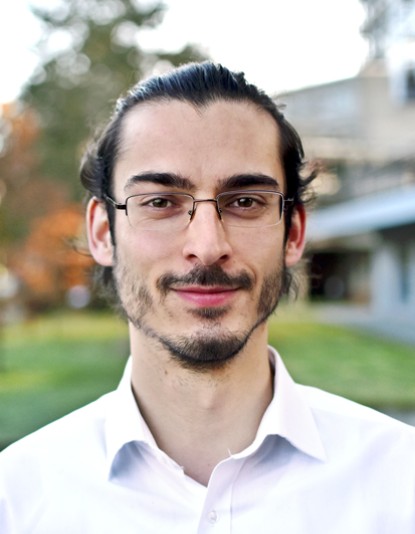Frederik Feike M.Sc.
EnEff:Stadt Campus Lichtwiese II
Contact
feike@ttd.tu-...
work +49 6151 16-20472
fax +49 6151 16-22262
Work
L2|06 215
Peter-Grünberg-Str. 10
64287
Darmstadt
| Since 2020 | Researcher at the Institute for Technical Thermodynamics, TU Darmstadt |
| 2019 | Master’s thesis: „Heat supply of a district with the integration of regenerativ sources“ |
| 2015-2019 | M.Sc. Mechanical and Process Engineering, TU Darmstadt |
| 2016-2017 | Study abroad at École Centrale de Marseille, France |
| 2010-2015 | B.Sc. Mechanical and Process Engineering, TU Darmstadt |
In the “EnEff:Stadt: Campus Lichtwiese II” research project, an interdisciplinary team of architects, electrical and mechanical engineers and the energy management department of Technische Universität Darmstadt is working on implementing the “Energiewende” (energy transition) at the district level. The aim is to develop an optimized overall energy concept with full sector coupling of electricity, heating, cooling and buildings, which should enable the TU to meet its reduction targets for CO2 emissions and energy requirements at optimal cost.
The Department of Technical Thermodynamics (TTD) is responsible for the consideration of thermal energy supply. Here, the aspects of energy generation, thermal energy storage and thermal networks as well as the interfaces between electricity and heating or cooling are examined. For this purpose, models are developed for setting up the thermal energy supply on campus. Optimization measures are derived from these models by comparing different future scenarios with regard to CO2 emissions and costs.
The first phase of the project until 2018 focused in particular on measures to increase efficiency, such as lowering grid temperatures and intelligent use of thermal storage. However, these steps are not sufficient to achieve the reduction targets. Therefore, in the second project phase, the focus is increasingly on the use of renewable heat sources such as geothermal and solar thermal energy in order to close the existing reduction gap.




